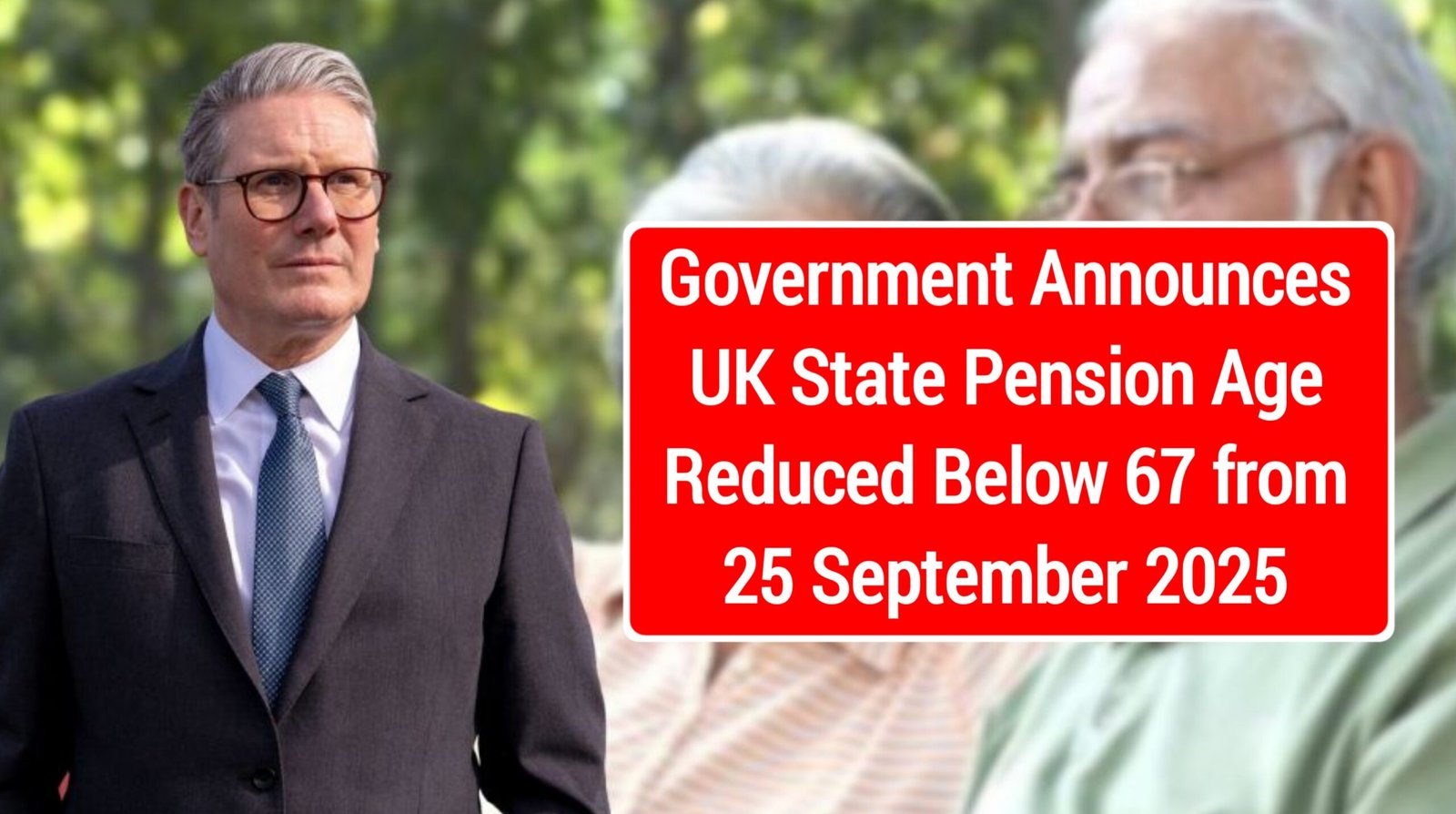The UK Government has announced a major change to the State Pension system that will directly affect millions of current and future pensioners. From 25 September 2025, the official State Pension age will be reduced below 67. This marks a significant reversal of the gradual increases to the retirement age seen over the past decade and is intended to ease pressure on older workers, improve quality of life, and acknowledge changing health and employment patterns across the country.
Why the State Pension age is being reduced
The decision to reduce the pension age below 67 is part of a broader government strategy aimed at rebalancing retirement support. Policymakers have cited rising living costs, slower wage growth for older workers, and the need to maintain fairness between generations. By lowering the age threshold, ministers hope to give people who have worked continuously since their teens or early twenties the chance to retire earlier with greater financial security.
Impact on existing pensioners
Current State Pension recipients will not see their entitlements reduced. In fact, the government has stated that anyone already receiving their State Pension will continue to receive full payments under the new rules. The key difference is that those approaching retirement will be able to claim earlier, potentially increasing the number of people drawing a pension in the short term.
New eligibility criteria explained
Alongside the reduction in the pension age, new eligibility criteria will be introduced. These will ensure that the system remains sustainable while opening access to more people. The main requirements will still involve reaching the qualifying age, accumulating sufficient National Insurance credits, and maintaining residency in the UK. The government also intends to review how gaps in contributions – for example, during periods of unpaid caring work – are treated, with a view to making the system more inclusive.
Financial planning for an earlier pension
With the age reduction taking effect from September 2025, many workers in their early to mid-60s will need to review their retirement plans. Financial advisers recommend reassessing personal savings, private pensions, and investments to determine how the earlier State Pension income will fit into overall retirement funding. This change may allow some people to stop working sooner, but it also means planning carefully to ensure long-term income stability.
Effect on employers and workforce planning
Employers across the UK will also feel the impact. Many sectors rely on experienced older workers, and an earlier retirement age could lead to skills shortages. Organisations may need to adapt recruitment, training, and succession planning strategies to mitigate the loss of seasoned staff. At the same time, reducing the State Pension age may open opportunities for younger workers as older employees transition out of the workforce.
Regional differences and fairness
The government recognises that life expectancy and health outcomes vary across different parts of the UK. Reducing the pension age below 67 is partly aimed at addressing these disparities. People in areas with lower average life expectancy will be able to claim their pensions sooner, helping to level the playing field. Future reviews may look at further adjustments to ensure fairness between regions and demographic groups.
How to claim under the new rules
The Department for Work and Pensions (DWP) will provide updated guidance before the changes take effect. Individuals approaching the new pension age will be contacted with information on how to claim. It’s expected that the process will remain largely digital, with online applications supported by telephone and in-person options for those who need assistance. Pension forecasts on the official government website will also be updated automatically to reflect the new age threshold.
State Pension amount remains protected
While the age threshold is changing, the amount of State Pension remains protected under the triple lock policy. This means it will continue to rise each year in line with the highest of earnings growth, inflation, or 2.5%. Pensioners claiming under the new rules from 25 September 2025 will therefore receive the same rates as those already retired, adjusted annually to maintain purchasing power.
Preparing for September 2025
For anyone nearing retirement, the key steps before September 2025 are to check your National Insurance record, ensure your contact details with DWP are up to date, and review your private pension arrangements. This proactive approach will help you make the most of the earlier retirement opportunity and avoid delays in receiving payments once the new rules come into force.
Broader social and economic benefits
Reducing the State Pension age below 67 could have wide-ranging social benefits. Older people may enjoy better health and wellbeing by leaving the workforce earlier, and families may benefit from increased availability of grandparents for childcare or voluntary roles in the community. Economically, while the policy will increase public spending in the short term, it could also ease pressure on other welfare systems and healthcare costs by improving quality of life for older citizens.
Looking ahead
The UK’s decision to reduce the State Pension age marks a significant shift in social policy. It reflects an ongoing debate about how to balance public finances with fairness for workers who have contributed for decades. As the September 2025 implementation date approaches, both individuals and employers will need to adapt to the new reality. Further reviews are expected in the coming years to assess the long-term sustainability and fairness of the State Pension system under these new conditions.
